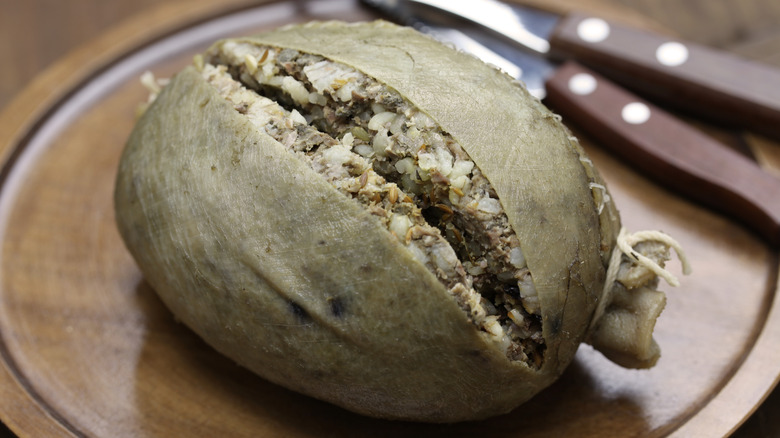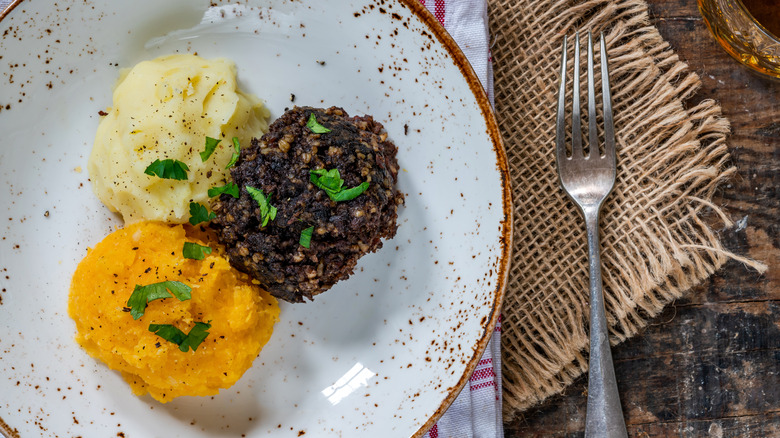The Uncertain Origin Of Scotland's National Dish
From comforting memories to playful jokes and maybe a bit of shock, few foods can conjure up such strong reactions as haggis. If you can get beyond the whole this-was-cooked-in-an-organ part, Scotland's national dish has all the ingredients necessary for a delicious meal: meat, onions, salt, spices, and oatmeal served with generous sides of potatoes and turnips. While original recipes called for eggs, breadcrumbs, sheep's fat, and seasoning to be stuffed into a sheep's stomach, Scottish Gourmet US insists the dish has since evolved. Yet the exact origins of haggis are hazy.
Visit Scotland reveals that the name could be derived from Sweden's "hagga," Iceland's "hoggva," or Scotland's "hag" — all words serving as accurate descriptors for the chopped contents of the cooked innards. In Homer's Odyssey, "a man before a great blazing fire turning swiftly this way and that a stomach full of fat and blood, very eager to have it roasted quickly" is referenced, and other haggis-type dishes are mentioned in 14th century English and Scottish poetry (via i news). But where did haggis come from, and would this question be fighting words in a Scottish bar?
A debate best had with a whisky dram
In 2009, Glasgow-born food historian Catherine Brown discovered a 1615 English cooking book with a written recipe for haggis (per History Today). It's clear the Scots weren't the first to come up with an inventive way to cook various animal parts — it's believed prehistoric hunters used a similar method to preserve meat, and Romans, Vikings, and Native Americans did the same — but the Scots have stoically continued to prepare meat in this way, perhaps making use of cuts that might otherwise be discarded (via Historic UK).
Scottish poet Robert Burns cemented Scotland's claim to the dish with his 1787 Address To A Haggis, a poem now recited annually at suppers held in honor of Burns' birthday (via The Culture Trip). As author Alexander Lee writes, "As long as there are Burns suppers, there will be people arguing over whether the 'great chieftain' is 'really' Scottish. And unless some dazzlingly new evidence comes to light, I don't expect the question will ever be settled." This question might be better left unanswered and chased by whisky, instead.

